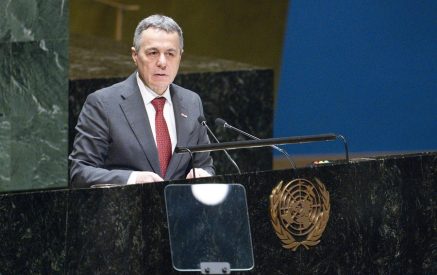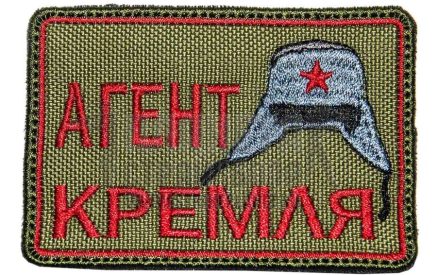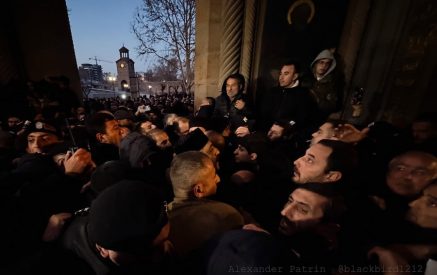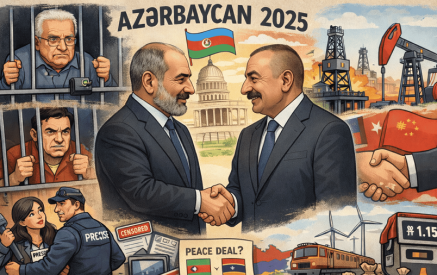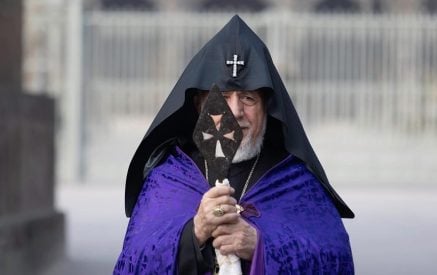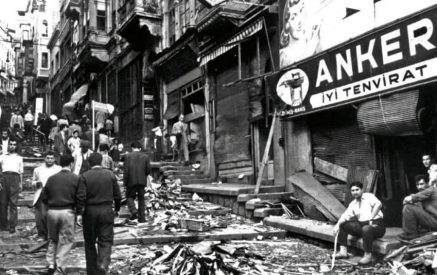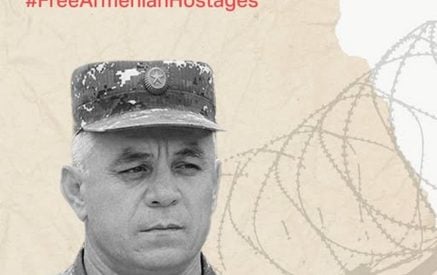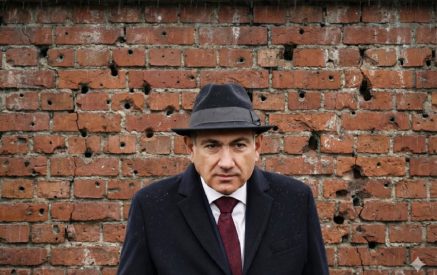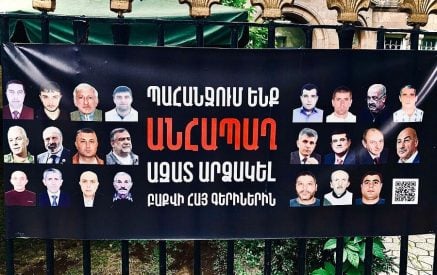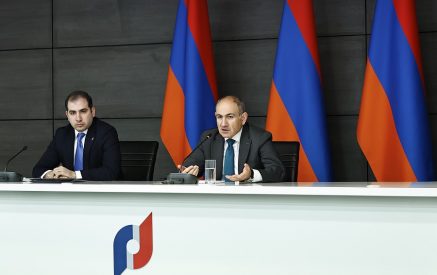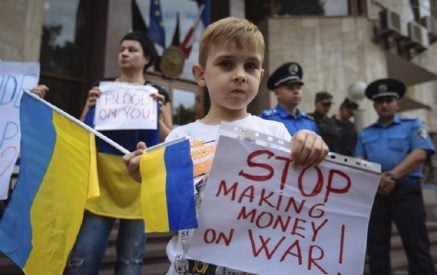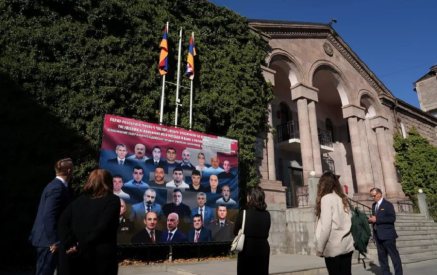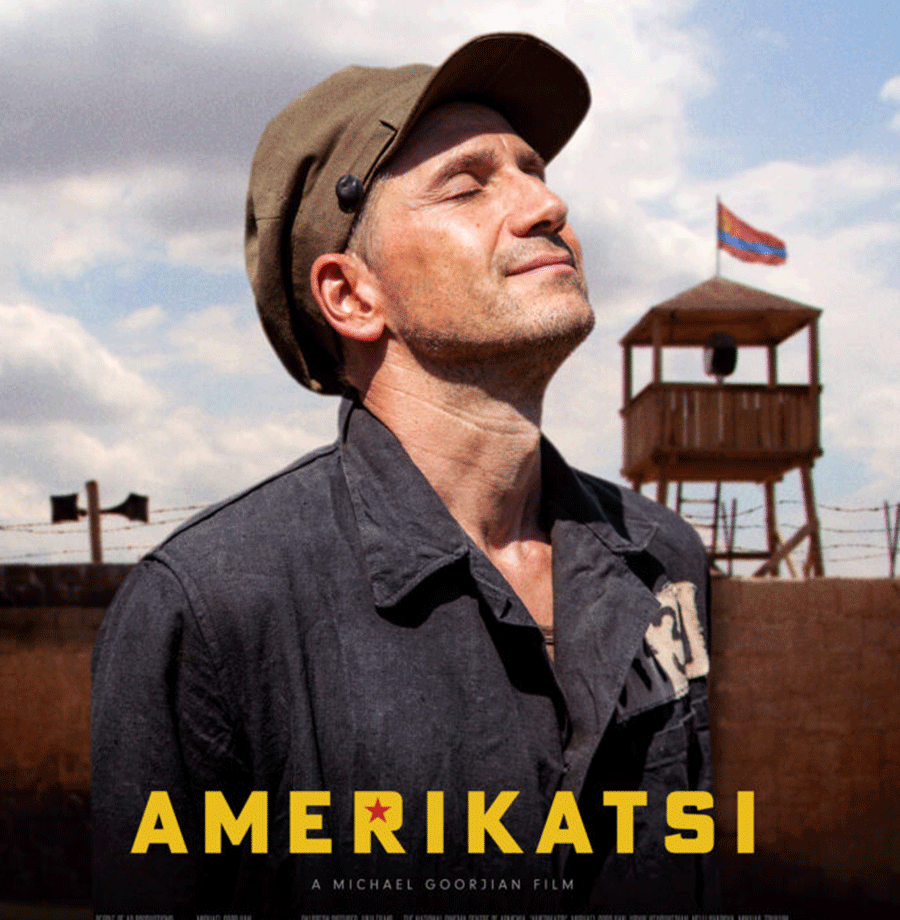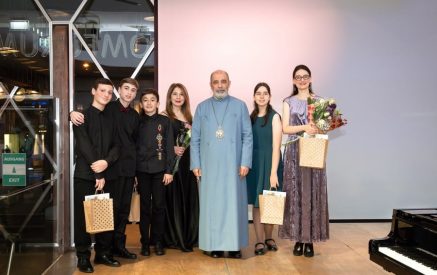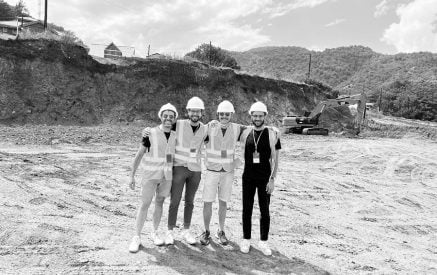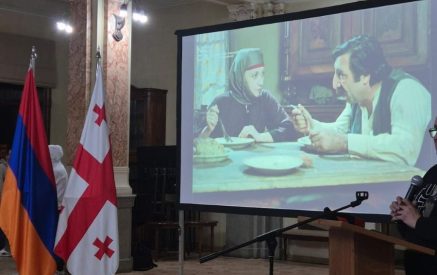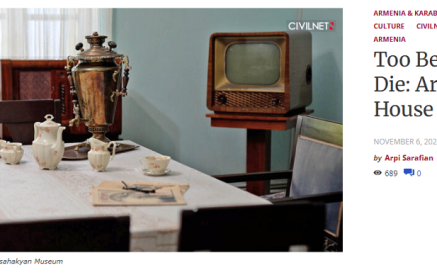by Christopher Atamian
That men do not learn very much from the lessons of history is the most important of all the lessons of history.
-Aldous Huxley
Read also
ln light of recent events in Artsakh, two historically-based feature films released in 2023, “Aurora’s Sunrise” and “Amerikatsi,” recall difficult but important periods in Armenian history. Each one delivers its own particular lesson to both Armenian viewers and the world-at-large. “Aurora’s Sunrise” cleverly meshes animation with found footage of a film otherwise lost (“The Auction of Souls”), with interviews of that film’s star, Aurora Mardiganian, conducted when she was elderly.
Expertly directed by lnna Sahakyan, “Aurora’s Sunrise” tells the true story of this remarkable Armenian Genocide survivor. Born in the village of Chmshgatsakh where her father was a master silk dyer, Mardiganian saw almost her entire family deported and shot in 1915.
She miraculously escaped a harem and made it back to her now destroyed hometown, and then on to Erzurum from where she escaped to America in search of her lost older brother Vahan. Once there, thanks to her beauty and some luck, she’s cast as the star of “The Auction of Souls,” a feature film which recreates her experience during the Armenian Genocide. The film became a rousing success, raising over $100 million and helped the Near East Foundation literally save an entire generation of Armenian orphans from certain starvation.
At the end of the film, an elderly Mardiganian tells viewers that what she desires the most is not revenge, but that Turkey be brought before a court of law and held accountable for its actions. “Aurora’s Sunrise” has performed beautifully at festivals and deserves all the praise heaped on it for its seamless integration of cinematic genres — not an easy task — and for its lovely and at times breathtaking retelling of an important page in both Armenian and film history. The hard lesson for Armenians: when faced with state-sponsored fascism — be it Turkish or Azeri — they can only count on themselves. This is something that the government of Armenia and the Armenian diaspora have unfortunately still not fully internalized, if the events of the past few years in Artsakh are any indication.
The light-hearted “Amerikatsi” tells the story of another, perhaps more obscure period in Armenian history known as the “Nerkaght,” which took place in the late 1940s, when some 100,000 diasporans repatriated to Soviet Armenia. Used to freer and more open societies, many of these repats ended up in Soviet gulags or eventually escaped back to their home countries, forever traumatized.
Writer-Director Michael Goorjian plays Charlie, an affable American born in Western Armenia who had barely escaped the Genocide in 1915 as a young boy. Best known for his role as Justin, Neve Campbell’s dreamy love interest in the 1990s TV series “Party of Five,” Goorjian does not disappoint.
Now all grown up, Charlie decides to heed the call of the Soviet Armenian government and return to the homeland. But he speaks only broken Armenian and he is naïve as to the true nature of Soviet Armenian society. The film begins with a minor act of heroism when Charlie rescues a young boy from potentially dire circumstances. This earns the eternal gratitude of the child’s mother, Sona, a role elegantly played by Nelli Uvarova, but not that of her husband Dmitry (Mikhail Trukin), a local Communist Party apparatchik who in a pique of jealousy sends him to prison.
From his Yerevan jail cell over the course of several years he daily observes a couple across the street, through whom he lives vicariously. He shares in their joys and deceptions, the birth of their child, their holiday celebrations. This voyeuristic pleasure keeps him alive in spite of the constant beatings and food deprivation that he experiences at the hands of the sadistic Warden Sargsyan (Jean-Pierre Nshanian). lt’s “Next Stop: Siberia” for Charlie until one day when Sona accidentally sees him in jail and comes to his rescue.
“Amerikatsi” runs a tad overlong in parts and focuses on Charlie’s depressing prison life long after the audience has understood the full ironic horror of his situation. Yet in the end, the technique of repetition and the close ups and medium range shots work to great effect, making viewers feel the full gravitas of his daily existence. Goorjian the actor gives a bravura performance: he straddles the sometimes fine line between humor and drama like a tightrope walker — never falling and deftly keeping a potentially over sad story easy going in tone. And the film’s somewhat surprise ending delivers one of the more touching resolutions in recent times. A shout out also goes to Karine Janjughazyan as Vladlena, the party functionary.
A minor quibble: the repressed romantic attraction between Charlie and Sona never gets developed — it might have added more suspense to the proceedings.
Producing “Amerikatsi” in Armenia with COVlD and the Artsakh situation and a hundred other small hindrances was a herculean task. Goorjian and the other producers — who include Eric Esrailian — should be recognized for bringing this important topic to the big screen at such a difficult time in Armenia’s history.
lf the lesson of “Aurora” is one of self-reliance then “Amerikatsi” suggests that Armenians should treat each other well before they expect others to do the same. ln the end both films take the viewer on unexpected cinematic journeys — one outward to the world-at-large, and the other inward to a world of self-reflection.
For more information on theatrical release show times and “Amerikatsi”
For more information on “Aurora’s Sunrise” check the website here.



